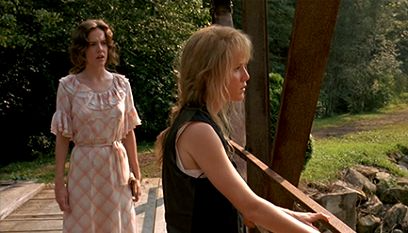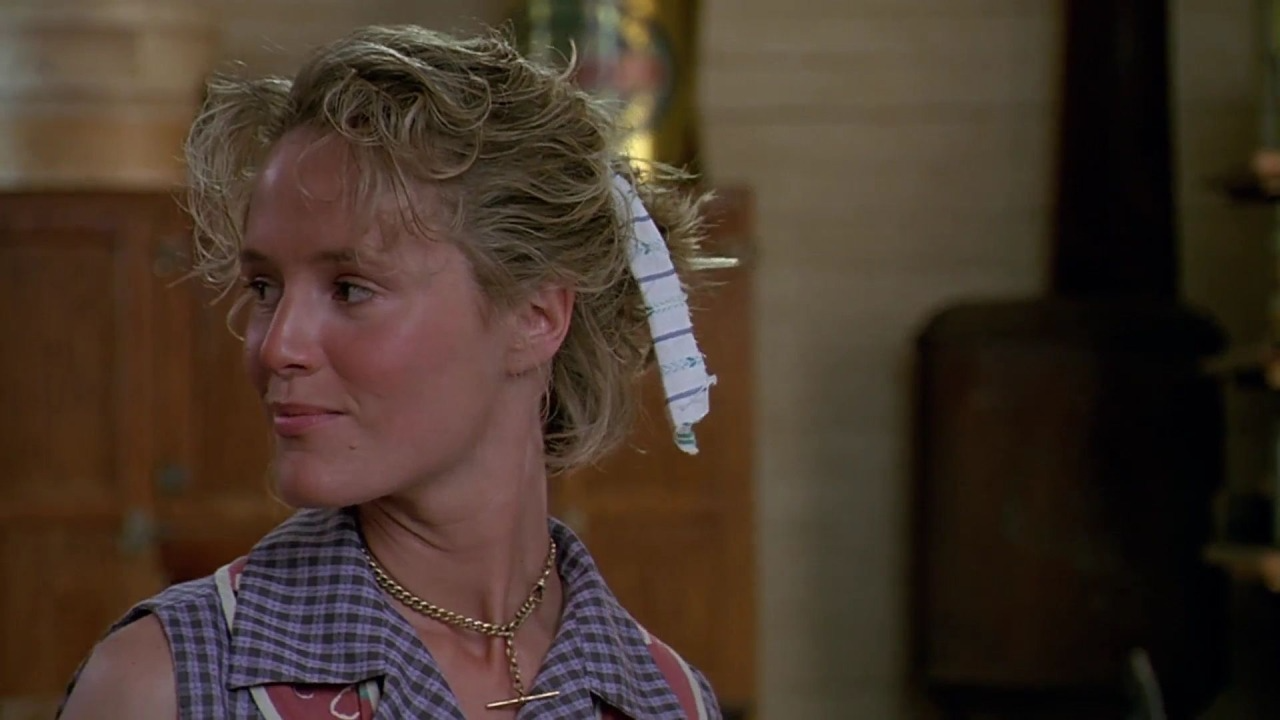
At first glance, the relationship between Idgie Threadgoode and Ruth Jamison might seem like a strong female friendship rooted in Southern sisterhood. But beneath the laughter, shared meals, and resilience lies something far more complex, layered, and deeply psychological — a bond shaped by trauma, healing, unspoken desire, and defiant love.
Through a psychological lens, their relationship stands as a powerful example of attachment, identity formation, and emotional refuge in a world that offered women very few safe harbors. Let’s unpack this remarkable relationship and explore what truly made Idgie and Ruth inseparable.
Trauma as the Catalyst for Connection
Both Idgie and Ruth carry psychological wounds that shape how they form attachments.
-
Idgie’s Trauma: The death of her beloved brother Buddy in a tragic train accident sends young Idgie into a state of deep grief and emotional withdrawal. She becomes fiercely independent, rejecting traditional norms, and putting up emotional walls. Her behavior reflects avoidant attachment — a strategy where individuals keep others at a distance to avoid further pain.
-
Ruth’s Trauma: Ruth, on the other hand, is trapped in an abusive marriage with Frank Bennett. Her trauma stems from sustained emotional and physical abuse, leaving her anxious, unsure of her worth, and desperate for kindness and safety. She represents an anxious-preoccupied attachment style — someone who longs for closeness but has been hurt by those who should have protected her.
When Idgie and Ruth reconnect after years apart, their differing attachment styles begin to complement and heal one another. Idgie offers Ruth safety, loyalty, and protection. Ruth gives Idgie purpose, intimacy, and trust. Together, they form a bond that transcends friendship and becomes an emotionally corrective experience — a space where healing becomes possible.
Emotional Intimacy and the Unspoken Romance
Psychologically, love is not always defined by sexuality or labels — especially in a time and place where same-sex relationships were taboo. Yet, the emotional intimacy between Idgie and Ruth is undeniable. It is consistent, exclusive, deeply affectionate, and built on mutual care.
Idgie’s refusal to conform to traditional gender roles — her clothes, her behaviors, her rejection of marriage — aligns with a queer-coded identity, whether she consciously articulates it or not. Ruth, more socially traditional, finds in Idgie not only a protector but a partner.
They build a life together: they raise a child, run a business, share a home, and plan their days around each other. Psychologically, these are the markers of a committed romantic relationship — whether spoken aloud or not.
The ambiguity of their relationship in the film is a reflection of the era’s constraints, but their bond speaks volumes. From a psychological standpoint, they exhibit the qualities of a secure emotional attachment — one built on trust, stability, and unconditional love.
Healing Through Co-regulation and Emotional Safety
One of the most powerful aspects of their relationship is the concept of co-regulation — the process where two individuals help each other manage emotional stress. This is a key aspect of trauma healing and secure relationships.
-
For Ruth: Idgie becomes her source of strength. She literally rescues her from an abusive situation, but more than that, she never asks Ruth to be anything but herself. Through Idgie, Ruth finds the freedom to smile again, to laugh, to hope.
-
For Idgie: Ruth grounds her. While Idgie is naturally defiant and untamed, Ruth brings out a softer side in her — a willingness to nurture, to stay, to love. For someone who always ran from vulnerability, Idgie chooses to stay with Ruth.
In psychological terms, their relationship provides the emotional attunement each woman lacked elsewhere in life. They validate each other’s pain, support each other’s healing, and provide a sense of “home” that neither had before.

Reclaiming Identity and Power
Through their bond, both women are able to reclaim parts of themselves that trauma had stolen.
-
Ruth reclaims her agency. She is no longer a victim of violence but a woman who actively chooses a life of peace and purpose.
-
Idgie reclaims her vulnerability. Once afraid to connect, she now devotes herself to caring for another human being with unflinching loyalty.
Their partnership also challenges gender roles and societal expectations. In a world that told them to marry, serve, and remain silent, they created their own family, their own rules, and their own form of power. From a feminist psychological perspective, their relationship is a radical act of resistance — a quiet revolution built on love.
The Quiet Grief of Letting Go
When Ruth eventually dies from cancer, it’s not just the loss of a loved one — it’s the unraveling of a shared world.
Idgie’s grief is deep, restrained, and private — the kind of grief that comes when society won’t recognize the magnitude of your loss. Her mourning reflects what psychologists call “disenfranchised grief” — grief that isn’t publicly acknowledged or validated because the relationship isn’t socially recognized.
And yet, the legacy of their love lives on — not only in the Whistle Stop Café, but in the people they impacted. In Buddy Jr., in Evelyn (who finds herself through their story), and in the viewers who still feel the depth of their bond decades later.
A Love That Heals, Even When It Can’t Be Named
Psychologically speaking, Idgie and Ruth’s relationship is a case study in how love — even love that must remain silent — can be transformative. It challenges traditional definitions of romance, showing us that emotional intimacy, mutual protection, and shared healing are the true markers of connection.
They were each other’s sanctuary in a world that didn’t understand them. And while the film may leave certain things unspoken, their love is clear to anyone willing to see it — fierce, loyal, and deeply human.
In the end, Fried Green Tomatoes is a story about how love, in all its forms, can change a life. For Idgie and Ruth, it wasn’t just about surviving. It was about truly living — together.
